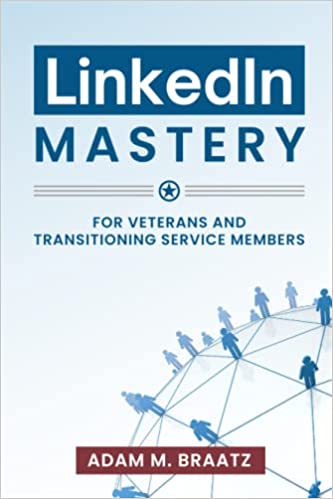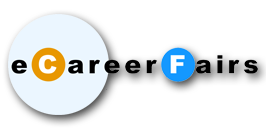Making a follow-up call after an interview is something that makes a lot of people nervous. Not only can the call itself be anxiety-inducing, but there's often some uncertainty about if you should call after an interview at all!
This post will help you determine when you should call after an interview, and what to say when you do.
Should You Call After an Interview?
Following up after an interview is always a good thing. It reiterates your interest in the position and establishes an open line of communication with the key decision-makers.
But should you call after an interview?
Generally, hiring managers and interviewers prefer to receive follow-up emails. It's a more efficient way of communication and shows your appreciation for their time all the same. A quick thank you email after your interview can leave a positive lasting impression.
With that being said, calling can be a good move in certain situations. In general, the best time to call after an interview is one to two weeks after the fact. Emails are great for showing your appreciation for the opportunity immediately after the interview. But calls can come in handy.
You may feel like phone calls are intrusive or old fashion. However, these are your opinions and not necessarily true of the person you are following up with. Phone calls are a quick and easy way to touch base for many people.
A follow-up call after an interview is best when you've given the hiring manager the appropriate time to make their decision. You don't want to call too soon or too often.
One of the best ways to determine WHEN you should follow up is to ask the question during the interview:
"When is the best time for me to follow up? And would you prefer email or a phone call?"
Follow instructions and wait the stated amount of time. Once the deadline has come and gone, you can reach out.
If you didn't ask the question during the interview, usually a week after the interview is a good time to follow up and inquire about the position and hiring process. Sometimes, hiring managers run into issues that stop the process in its tracks. They don't always contact applicants, so a quick follow-up call can provide insight into why you haven't heard back since the interview.
While emails tend to be the preferred form of contact, calls are an excellent way to reach out if you feel the interview went well but haven't received information about a decision. It's also appropriate if you've received other job offers and need to weigh your options.
How to Make the Call & What to Say
Waiting to hear back after a good interview can be a nerve-wracking experience! And to make things worse, it sometimes takes a while to hear back about a job.
A follow-up call after the interview can clear your nerves and even increase your chances of getting a job offer. However, they'll only benefit you if you use this call strategically.
Here are some best practices to ensure that your follow-up call leaves a lasting impact.
Practice the Conversation
It's perfectly natural to be a little uneasy about making a follow-up call after an interview. The interview itself is hard enough. Reaching out to inquire about the results is enough to make anyone feel anxious.
Assuming you've determined that you should call after the interview, take some time to practice what you'll say. You want to come across confidently. Stumbling over your words and going through drawn-out awkward silences will have the opposite effect of what you want.
Consider creating a small script for the call. It doesn't have to be a full-on word-for-word script that you recite verbatim, but it pays to have the most important parts of the conversation in front of you.
Have all the basic elements memorized. That includes position title, names of the people you're talking to, and anything else you want to ask or mention. It's also a good idea to have your resume before you just in case they have follow-up questions.
If you have any questions or points you want to make, write them down. A list of subjects you want to cover can help you stay on track so that you don't forget important questions or points you want to make.
Once you have your script ready, practice the follow-up call a few times! There's no shame in calling up a friend and asking them for their feedback. Roleplay for a few minutes and get comfortable with the conversation before dialing the contact's phone number.
Introduce Yourself
It's important to remember that the person you're calling has likely met many people during this interview process. In the last week, they might have met another 100 people! Don't assume they'll remember who you are by voice or caller ID.
When calling after an interview, start by introducing yourself and letting the contact know why you're following up. State your full name and mention what position you interviewed for and when. Hopefully, those small details will jog their memory and put a face to your voice.
Speak confidently and with enthusiasm. While they can't see you over the phone, try smiling while you talk to help you sound positive!
Be Professional
This sounds like a given, but you'd be surprised how easy it is to forget basic professional decorum when you're speaking over the phone. Professionalism is a must. The hiring managers may not have made a decision yet, so there's still room to impress them.
Treat this follow-up call as an extension of your interview. Maintain a professional tone while being optimistic and friendly. It's always a good idea to flex your communication skills and exude a sense of warm positivity.
People love to be around people who are easy to get along with and brighten up the room. A follow-up call after the interview is an excellent opportunity to impress and put your professionalism on full display.
Avoid slang and keep things relatively formal.
Let Them Know You Enjoyed the Interview
Don't forget to mention that you enjoyed the interview. Use this conversation to express your interest and gratitude for the opportunity. Even if you've already said thanks in a follow-up email, talking about how you enjoyed the meeting can make a significant difference.
Hiring a new employee isn't easy for anyone involved. Hiring managers have to meet many applicants and often deliver bad news. Show a sense of empathy for their stress and extra workload during the hiring process. Expressing that you understand their situation during your follow-up call can leave decision-makers feeling warm about you and your candidacy.
If you want to stick out in their mind, you can even bring up something you talked about in the interview. That could be a similarity you shared or something positive in your resume you spoke about during your meeting. Whatever the case may be, bringing that shared experience up shows many things.
It shows that you're genuine and truly care about getting this job. Both of those details can improve your chances of getting a job offer.
Ask for an Update
One of the biggest reasons why you should call after an interview is to inquire about the status of the hiring decision (assuming enough time has gone by). So don't forget to bring that up!
Of course, you want to avoid sounding pushy or impatient. It takes time to make crucial hiring decisions. While one to two weeks is the general timeline, some companies may take longer. That's just the nature of the job market!
Don't be afraid to use this follow-up call to ask when you should expect to hear back. That's an easy way to inquire about the process without seeming like you're aggravated or trying to rush the hiring manager.
Limit this to a one-time question. Don't call every day for a status update. Doing that could take you out of the running entirely.
Don't Be Afraid to Leave a Voicemail Message
Finally, don't hesitate to leave a voicemail if no one answers. Don't worry, hiring managers are busy individuals. A missed call doesn't mean that they're ignoring you.
Instead of calling back repeatedly, simply leave a voicemail. You can cover all the points you need in a brief message.
Here's where having a script for your follow-up call comes in handy! Introduce yourself, thank them for the opportunity, and leave a callback number so that they can reach out to you if they need to.
Voicemails are just as impactful as a full-blown conversation. Just keep things brief and maintain that friendly, professional tone. Try to keep the message short and to the point.
Remember, you're likely not the only one trying to get in touch with the hiring manager. Other applicants may be doing the same thing as you.
Avoid repeat calls and multiple messages.
Sample Scripts
When doing a follow-up call after your interview, it pays to prepare long before you dial a single digit. Write down a brief script and create some bullet points you want to cover.
For the most part, these calls are straightforward, but you can form the call in a couple of different ways.
In this first example, we'll provide a basic script that you can leave as a voicemail message. It also works as an opener if you manage to get in touch with someone.
The follow-up call script below is to the point and covers all your bases.
"Good morning Sarah Smith. This is [YOUR NAME]. We met last Monday, April 11th, when I interviewed for the social media manager position at [COMPANY].
I wanted to thank you once again for taking time out of your busy schedule to meet with me. I enjoyed our discussion and am impressed by your vision for the company's social media campaigns. I'm eager to be a part of it.
I'm reaching out to follow up on when you might be contacting candidates about moving into the next stage in the hiring process. Please contact me at your earliest convenience. I'm happy to answer any additional questions you might have. I'm available any time before 5:00 PM on weekdays. You can reach me at (555) 555-5555.
Thank you again, and I hope to hear back from you soon."
This script is brief and hits all the marks. You instantly introduce yourself, remind the interviewer about who you are, express gratitude, and ask about the status update. It's as simple as that.
Here's another good sample script that will help you when calling after an interview.
"Good morning Bob Johnson. This is [YOUR NAME] calling to follow up about my April 11th interview for the project manager position at [COMPANY]. I enjoyed the opportunity to chat with you about your company's plans. It only cemented my interest in this position.
I appreciate your consideration and was hoping to learn more about your hiring timeline. You can reach me at (555)555-555 any day before 5:00 PM. I look forward to hearing from you. Enjoy the rest of your day!"
Once again, this script for your follow-up call after an interview keeps things simple. It's brief and works well as a quick voicemail message.
Conclusion
As you can see, follow-up calls after an interview don't have to be scary. As long as you've allowed for an appropriate amount of time to pass after the interview, it can be a great way to get an update on the process.
Just prepare in advance, and your call will be just fine!



